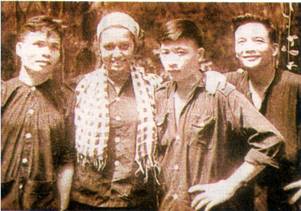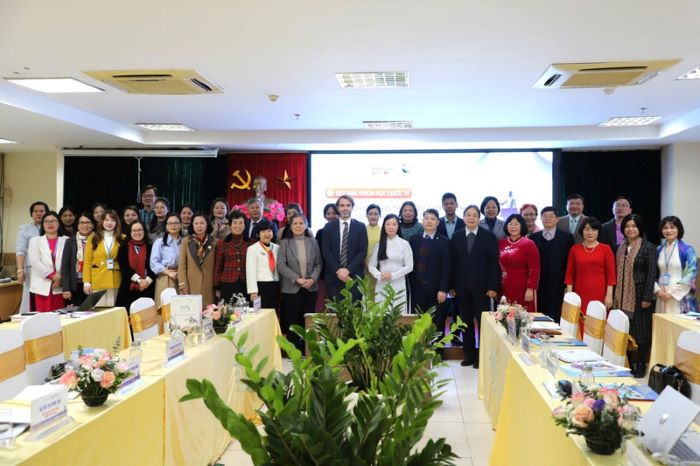Several days later, Fidel Castro called Marta to his office for a mission assignment: “the South Vietnam National Liberation Front is ready to receive you. Prepare yourself immediately”.
A male journalist by the name of Raul Valdes Vivo from the Today Newspaper came with her. They arrived in Vietnam via Cambodia, crossing the jungles to Tay Ninh province. For the first 6 months they lived with the South liberation fighters. During this time Marta accomplished and sent home a series of articles as well as a book, which was later titled “South of Vietnam – People as Strategic Weapon”.
Later Marta published a second book – “Vietnam Landscape”. These two books combined with articles written by Raul Valdes Vivo presented lively and candid images about the struggle of the Vietnamese people to the populations of Cuba and Latin America.
For the whole decade from 1965 to 1975, Marta Rojas came to Vietnam for 2 months every year to cover what was happening. She literally shared the hardship and danger with the South people and liberation fighters. Marta and the liberation fighters once approached an area as close as 15-20 kilometers away from Sai Gon. To the question of a Vietnamese journalist “As a woman from abroad, aren’t you scared by the bombing? What brought you to Vietnam?”, Marta Rojas replied “The small Vietnamese women are so resilient to hardship. This touches me deeply and helps me overcome all difficulties”.
She was more scared of frogs, leeches and other insects than by the American bombing but she gradually got over her fear, seeing the Vietnamese girl fighters putting the clingy leeches back on the leaves and joking “they are our natural weapons to fight Americans”.
Some small details stick in her mind: “One day we were hiding in a bush near the road. From there I could see two elderly women who from time to time picked up something and put it in a small bag. I asked my companions who told me that the two illiterate women were counting the number of American and pro-American soldiers pass by that day and the bag would later be handed to a revolutionary fighter. only here could I fully understand the all-out fighting strength of the Vietnamese people. And so I came to understand Uncle Ho’s belief in the people and in the final victory”.
Marta Rojas’ fondest memory of Vietnam is her interviewing President Ho Chi Minh just two months before his death. She said “Everything is still vividly clear in my mind. He received me in a small house near the Presidential Palace. At 7 pm, Uncle Ho, in a simple light-colored costume met me at the door. As a nice surprise, he greeted me and asked me about my health and Fidel Castro’s health with impressive Spanish. My first impression of him was that he was a great person, yet very simple and courteous. He was a sage, a genuine and learning revolutionary to me. I came to interview him, but he interviewed me first. He said, “Let’s talk” and asked me about my impressions of the living and fighting of the Vietnamese soldiers and the livelihood of the people in the areas I visited. He spent half a day talking with me and asked me a lot”.
I asked him, “Why are you so sure of a victory over such a mighty enemy, who are devastating the Vietnamese villages day and night with bombings?”. President Ho Chi Minh said, “I have a belief in the strength of the Vietnamese people as well as the strong support of the people of the world including the Cuban people. We are greatly encouraged by the Vietnam-solidarity demonstrations by the Cuban people, especially by Fidel Castro’s saying “For Vietnam, Cuba is willing do give even its blood”. The anti-American resistance war will be faced with many difficulties and hardships but we will surely win”.
Marta Rojas shared his belief. When recalling the meeting with President Ho Chi Minh, she ended, “Anywhere and anytime, I could see the optimism of the Vietnamese people, who despite the bombing were still cultivating their thousand-year-old land and cheerfully singing. They finally won”.
Now as a Vice-president of the Cuba-Vietnam Friendship Society, Marta Rojas continues to write about Vietnam in renovation and actively contributes to strengthening the valuable fraternal friendship between the peoples of Cuba and Vietnam.








